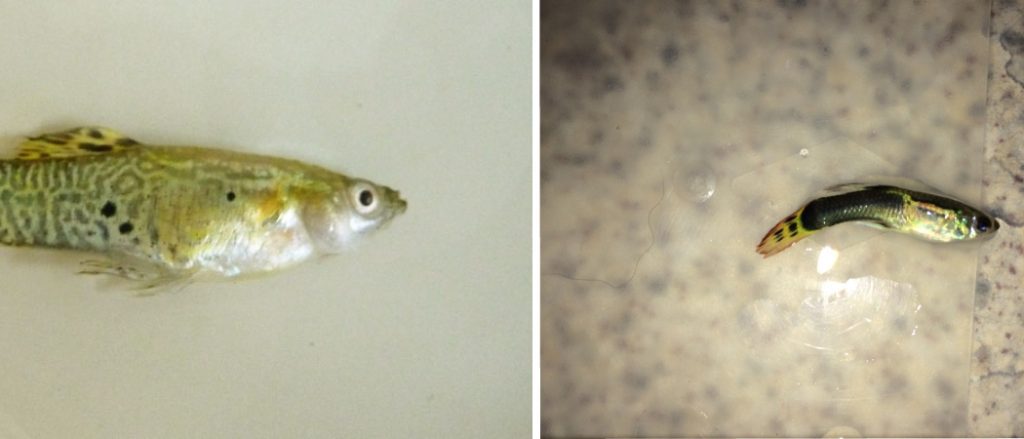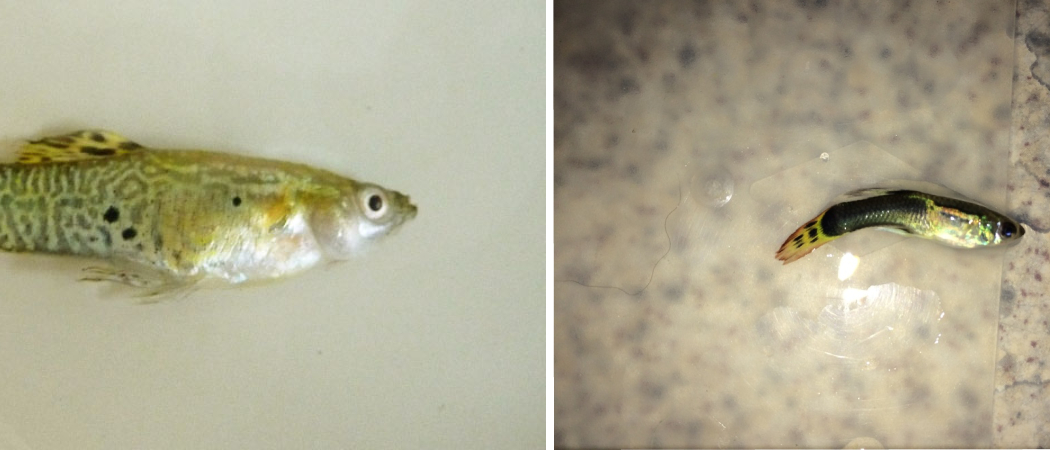Guppies may be dying due to poor water quality, improper feeding, overcrowding, or diseases. In order to prevent guppy deaths, it is important to maintain clean water conditions, provide a balanced diet, avoid overstocking the tank, and promptly address any signs of illness.

Possible Causes Of Guppy Deaths
Guppies are popular freshwater fish, known for their vibrant colors and playful personalities. However, it can be disheartening when you constantly find your guppies dying for seemingly no reason. Understanding the possible causes of guppy deaths is crucial in order to create a healthy and thriving home aquarium. In this article, we will explore three main factors that can contribute to the demise of your guppies: water quality issues, disease and infections, and environmental factors.
Water Quality Issues
Water quality plays a crucial role in the overall health and well-being of your guppies. Poor water conditions can stress out and weaken your fish, making them more susceptible to diseases and infections. There are several key factors to consider when it comes to water quality:
- pH Level: Guppies thrive in slightly acidic to neutral water conditions, with a pH range of 6.8 to 7.4. Any significant deviations from this range can cause stress and harm to your fish.
- Ammonia and Nitrite Levels: Ammonia and nitrite are toxic substances that can accumulate in an aquarium if not properly managed. Regularly test your tank’s ammonia and nitrite levels and take immediate action if they exceed safe thresholds.
- Temperature: Guppies are tropical fish and require stable water temperatures between 74°F and 82°F (23°C to 28°C). Fluctuations outside of this range can lead to stress and weakened immune systems.
- Water Filtration: Insufficient filtration can result in the buildup of harmful substances and waste products. Invest in a high-quality filter that effectively removes impurities and supports a healthy ecosystem.
Disease And Infections
Guppies, like any other living organisms, are susceptible to diseases and infections. Common diseases that can afflict guppies include fin rot, ich, velvet, and dropsy. These conditions can be caused by various factors:
- Introducing Infected Fish: Adding new fish to your aquarium without proper quarantine procedures can introduce diseases and infections to your existing guppies.
- Poor Tank Hygiene: A dirty tank, contaminated water, or the presence of decaying organic matter can promote the growth and spread of harmful pathogens.
- Stress: Guppies that are stressed due to overcrowding, bullying, or improper tank conditions can become more susceptible to diseases.
Environmental Factors
Environmental factors can also contribute to the death of guppies in your aquarium. These factors include:
- Incompatible Tankmates: Some fish species are not compatible with guppies, and aggressive or territorial tankmates can cause stress and physical harm.
- Lack of Hiding Spots: Guppies, especially females, require hiding spots to seek refuge or give birth to their fry. The absence of suitable hiding places can lead to stress and increased mortality rates.
- Overfeeding: Overfeeding your guppies can lead to uneaten food sinking to the bottom of the tank, contributing to poor water quality and potential health issues.
By addressing these possible causes of guppy deaths and taking the necessary measures to rectify them, you can greatly improve the health and longevity of your guppies. Regularly monitor water parameters, maintain good tank hygiene, and provide a suitable and stress-free environment for your fish. With proper care, your guppies can thrive and bring joy to your aquarium for years to come.

Credit: www.reddit.com
Detecting And Preventing Guppy Deaths
Guppy deaths can be an ongoing concern for fish owners. Discover the reasons behind these unfortunate occurrences and learn effective methods to detect and prevent further loss in your aquarium.
Regular Water Testing And Maintenance
Guppies are known for their hardiness and adaptability, but even these resilient fish can succumb to various health issues. One of the most common concerns among guppy owners is the unfortunate phenomenon of guppy deaths. Fortunately, there are steps you can take to detect and prevent these deaths, giving your guppies the best chance at a long and healthy life.
Regular water testing and maintenance are essential in ensuring a suitable environment for your guppies. Poor water quality can lead to stress, weakened immune systems, and ultimately, death. Conducting water tests every week using a reliable test kit will allow you to monitor crucial parameters like pH levels, ammonia, nitrite, and nitrate levels.
Keep a record of these readings to identify any consistent abnormalities. Maintaining optimal water conditions for your guppies involves frequent water changes and proper filtration. Changing 25% of the water volume every week will help dilute harmful substances and replenish essential elements.
In addition to water changes, regularly cleaning the aquarium and removing debris and uneaten food will minimize the accumulation of harmful organic matter. Maintaining the cleanliness and stability of the aquatic environment will significantly reduce the risk of guppy deaths.
Quarantine And Treatment
Another critical step in preventing guppy deaths is a proper quarantine process. Before introducing new guppies into the main tank, it is crucial to quarantine them separately for at least two weeks. This allows you to observe and identify any potential diseases or health concerns before they can spread to the rest of the fish population.
During the quarantine period, closely monitor the new guppies for signs of illness, such as loss of appetite, lethargy, unusual behavior, or physical abnormalities. If you detect any red flags, it is essential to take swift action to isolate and treat the affected fish.
Consulting with a veterinarian or an experienced fish hobbyist can provide guidance on appropriate treatments for specific ailments. Common treatments may include medicated foods, aquarium salt baths, or specific medications. Acting promptly and diligently during the quarantine and treatment process can make a significant difference in preventing guppy deaths and ensuring the overall health of your aquarium.
Creating A Suitable Environment
Creating a suitable environment is crucial for the well-being of guppies and can play a significant role in preventing deaths. Provide your guppies with ample hiding spots, such as plants, caves, or decorations, to reduce stress and offer a sense of security.
Maintaining appropriate water temperature is essential, as guppies thrive in temperatures between 75°F and 82°F (24°C to 28°C). Use a reliable aquarium heater and monitor the temperature regularly to avoid drastic fluctuations that can stress or harm your guppies.
Furthermore, ensure the correct water parameters, such as the appropriate pH range (around 7.0), and avoid overcrowding the tank. Overcrowding can lead to increased stress, aggression, competition for resources, and higher chances of disease transmission.
A nutritious and varied diet is also essential for the health and vitality of your guppies. Provide a mix of high-quality flakes, pellets, and live or frozen foods. Avoid overfeeding and remove any uneaten food to prevent water contamination.
By implementing these measures and creating a suitable environment, you can significantly reduce the risk of guppy deaths. Remember that prevention is key, and early detection of health issues is crucial for successful treatment and the overall well-being of your guppies.
General Tips For Keeping Guppies Healthy
Guppies are beautiful and vibrant fish that are popular among aquarium enthusiasts. However, it can be frustrating when you notice your guppies dying unexpectedly. To ensure the well-being of your guppies and prevent further casualties in your aquarium, it’s important to follow some general tips for keeping guppies healthy.
Proper Feeding And Nutrition
Feeding your guppies a balanced and nutritious diet is critical for their overall health and longevity. A well-fed guppy is less prone to diseases and stress.
Here are some important tips to consider for proper feeding and nutrition:
- Provide a varied diet: Guppies are omnivores, which means they enjoy a diverse menu of both plant-based and protein-based foods. Feed them a combination of high-quality flake or pellet food, frozen or live foods such as brine shrimp or bloodworms, and even some blanched vegetables like spinach or peas.
- Feed in appropriate quantities: Overfeeding can lead to health issues and water pollution. Offer small portions of food a few times a day, enough for them to consume within a few minutes. Remove any uneaten food promptly to maintain water quality.
- Consider supplemental vitamins: Guppies benefit from vitamins and minerals. You can provide additional nutritional support by using specialized guppy supplements, which can enhance their colors and boost their immune system.
Adequate Space And Filtration
Guppies thrive in aquariums that provide them with sufficient space to swim and explore. Additionally, maintaining good water quality through adequate filtration is crucial in preventing stress and disease outbreaks.
Take note of the following tips for providing adequate space and filtration:
- Size matters: Guppies require at least two gallons of water per fish, so ensure your tank is large enough to accommodate their needs. A crowded tank can lead to stress, aggression, and compromised health.
- Choose the right filtration system: An efficient filtration system is essential for removing toxins, uneaten food, and waste products from the tank. Consider using a combination of mechanical, biological, and chemical filtration to keep the water clean and free of harmful substances.
- Maintain proper oxygen levels: Guppies need adequate oxygen to thrive. Ensure proper surface agitation and utilize an air stone or airstrip to increase oxygenation in the tank.
Monitoring Tank Mates And Compatibility
When adding new fish to your guppy tank, it’s important to consider compatibility to prevent any unnecessary stress or aggression.
Here are key points to remember when monitoring tank mates and compatibility:
- Choose peaceful tank mates: Guppies are generally peaceful and sociable fish, making them great companions for a variety of community tank species. However, avoid pairing them with aggressive or fin-nipping fish that may cause harm or stress.
- Observe behavior: Regularly monitor the interactions between your guppies and other tank mates to ensure there is no aggression or dominance issues. If you notice any signs of bullying or stress, consider rehoming or separating the problematic fish.
- Quarantine new additions: Before introducing new fish to your guppy tank, it’s wise to quarantine them in a separate tank for a few weeks to observe for any signs of disease. This will help prevent the spread of potential infections to your existing guppies.
By following these general tips for keeping guppies healthy, you can create a suitable environment for your guppies to thrive, reduce the risk of disease outbreaks, and enjoy the vibrant beauty of your guppy community.

Credit: www.amazon.com

Credit: www.amazon.com
Frequently Asked Questions Of Why Do My Guppies Keep Dying
Why Are My Guppies Dying So Quickly?
Guppies can die quickly due to poor water quality, stress, overcrowding, disease, or improper feeding. Ensure the water parameters are suitable, avoid sudden changes, don’t overload the tank, quarantine new fish, and provide balanced nutrition to help prevent guppy deaths.
What Can Cause Sudden Death In Guppies?
Sudden death in guppies can be caused by various factors such as temperature fluctuations, improper pH levels, ammonia spikes, poor oxygenation, or bacterial infections. Maintaining stable water conditions, regular tank maintenance, and promptly treating any health issues can help prevent sudden deaths.
How Can I Prevent My Guppies From Dying?
To prevent guppy deaths, maintain a clean and well-regulated aquarium, provide appropriate nutrition, avoid overfeeding, quarantine new fish, acclimate them properly, and observe for any signs of illness or stress. Regular water testing, water changes, and seeking professional advice when needed can also aid in ensuring guppy health.
Conclusion
To sum it up, understanding the reasons behind the frequent deaths of guppies is crucial for their well-being. By addressing common issues such as water quality, over or underfeeding, improper tank setup, and inadequate healthcare, you can provide a suitable environment for these beautiful fish to thrive.
Regular monitoring, appropriate feeding, and consulting with experts will go a long way in ensuring the longevity of your guppies. Don’t hesitate to take necessary measures to give your guppies the care and attention they deserve.

